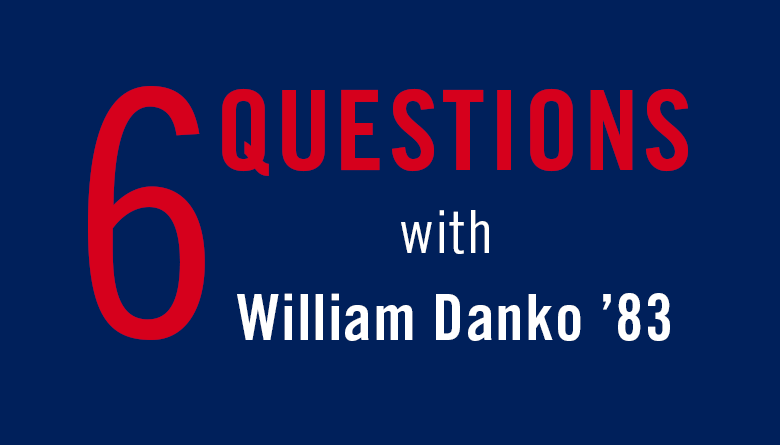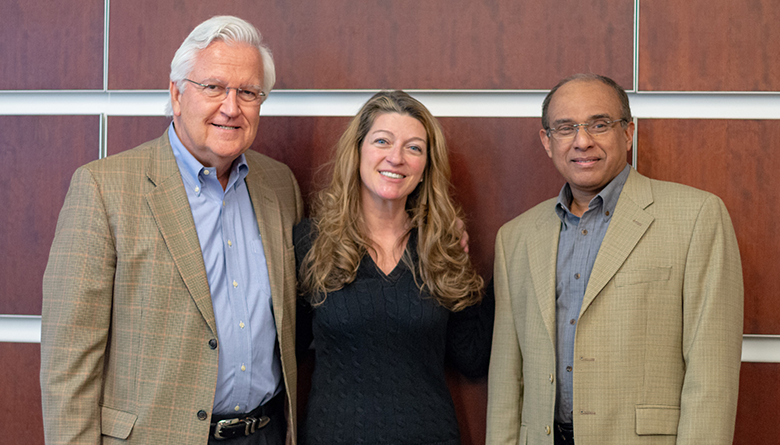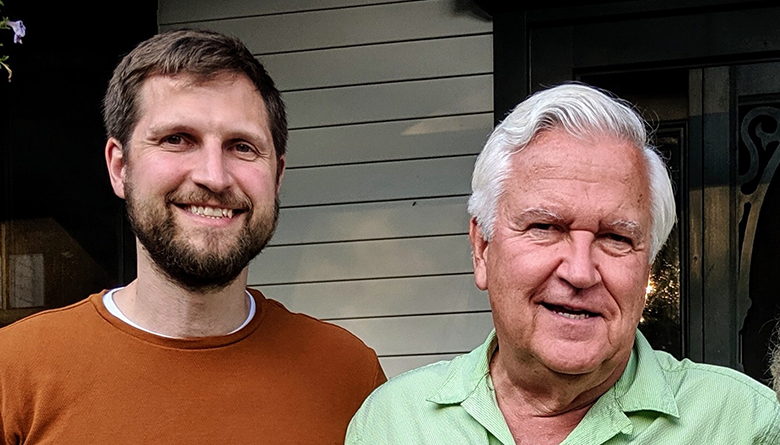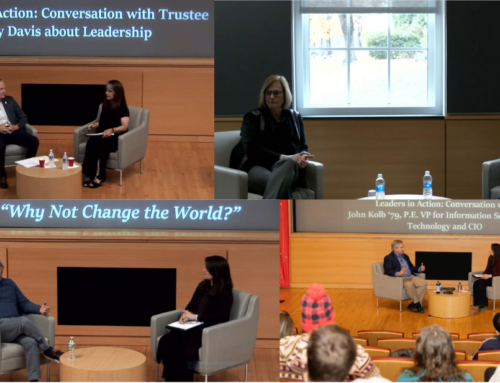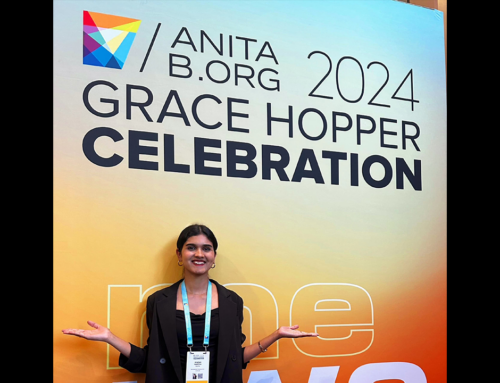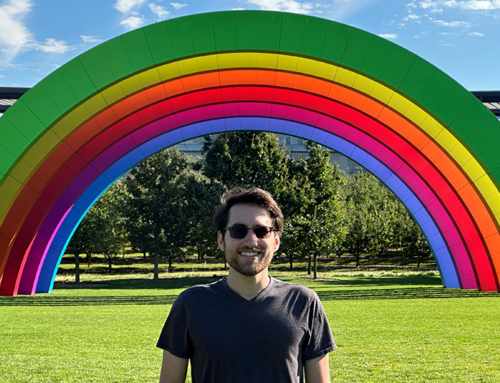William Danko ’83 is the coauthor of The New York Times best-seller The Millionaire Next Door: The Surprising Secrets of America’s Wealthy, a research-based book about wealth formation in America. During his 31-year tenure at the University at Albany, Danko studied consumer behavior, specifically focusing his expertise on the topic of wealth formation.
Recently, he and former business Professor Richard Van Ness coauthored a new book, Richer Than a Millionaire: A Pathway to True Prosperity, which explores how one can achieve wealth and happiness through traditional values.
What is the biggest lesson you have learned from your research on consumer behavior and wealth formation?
The biggest lesson is that there are many ways to generate money. However, without a plan to save aggressively and invest across a diversified portfolio, it is unlikely you will create enough financial wealth to sustain your lifestyle when you can no longer work. Unfortunately, most people, even some high earners, ignore this advice. High earners might have a lavish lifestyle, but they will always be on an economic treadmill if they spend everything they make.
Consider the following case study of an ordinary millionaire with multiple streams of income:
I interviewed Enrique, a Mexican immigrant who has a $3 million net worth. He never went to college or even took a marketing course. However, he has perfect musical pitch. He is also a piano tuner and a commissioned salesman for a piano company. He is able to discuss his clients’ “piano needs” in the privacy of their living room, and help them select a new piano. With his stream of commissions, he invests in rental housing, thereby collecting a stream of rents. He has a diversified portfolio to sustain his family. He understands how to create financial wealth.
What inspired you to investigate and write on the topic of wealth formation and prosperity?
In 1973, I had the good fortune of assisting Professor Thomas J. Stanley with his first study of the affluent. Over the next 20 years, we collaborated on a number of academic journal articles and consulting studies for financial institutions. During this time, he moved to Georgia and I remained in New York. In 1993, he called me up to discuss yet another study that would draw on our previous findings. The running title was “Big Hat, No Cattle,” which is about those who only have the allusion of financial wealth. We funded our own survey research that gave structure to what was to become the 1996 New York Times best-seller The Millionaire Next Door.
This research area proved quite fruitful, leading to many consulting and speaking opportunities. It also gave me time to reflect on true prosperity while acting as the primary caregiver for my quadriplegic brother, to whom the new book is dedicated. To be clear, financial wealth is useful but it is not sufficient for true prosperity. After rereading Benjamin Franklin’s 1758 essay “The Way To Wealth,” my colleague, Professor Richard J. Van Ness, and I self-funded new survey research and wrote Richer Than A Millionaire: A Pathway To True Prosperity. Read an overview of the new book from The Washington Post, and the $9 billion Vanguard Charitable Fund.
What is one piece of advice you’d offer to college graduates?
I can’t answer this with just one piece of advice. Having taught over 10,000 students (being in lecture centers in my earlier years boosted the numbers), I’ve had numerous one-on-one conversations with students. The technical issues about marketing research and strategy started many office hour discussions. But as a father and grandfather, I sensed that many students also had personal concerns: fear about the future, issues of family disruptions (divorce, death), the reality of financial debt, and dreams about the “ideal” career. Here is some useful guidance I give:
- Follow your dreams, but don’t forget to make a living.
- Live within your means. Practice self-imposed financial scarcity. For example, buy a good, used, depreciated car. Think about the time value of money before making a purchase.
- Don’t be obsessed with status symbols. My research shows that for every wealthy person who buys a high-end item, there are four or five others doing the same, because they want to look wealthy. You can either look wealthy or be wealthy.
- Honestly ask yourself, what value do you add? Would you hire yourself?
What is a small change everyone can make to lead happier, more fulfilling lives?
Appreciate that America is the land of opportunity, where we have protected property rights. We live in a truly unique environment that allows an entrepreneurial spirit to thrive and be profitable. Indeed, this is a message that resonates in The Millionaire Next Door. But again, reflecting on Franklin’s “The Way To Wealth,” note that all of our efforts are “blasted without the blessing of heaven, and therefore ask that blessing humbly, and be not uncharitable to those” in need.
I can’t help but think about a conversation with my dissertation adviser, the late Professor James MacLachlan. He knew that our worldly success was only partially in our hands, and would remark about the arrogance of the so-called self-made success story. Despite our best efforts, he reminded us that some things were not meant to be. However, if we do succeed and create riches, we have a natural obligation to share with others.
I’m convinced that taking this advice will make us all better off.
What is the biggest misconception you’ve heard about wealth in America?
One exercise I use is to ask about current net worth, and how much you feel you would need to feel rich. Based on my empirical data, those with a $500,000 net worth feel they would need five times more to feel rich. Those currently with $2.5 million say they would need $5 million. These are lofty numbers when you consider data from the Federal Reserve.
The reality is that half of all households in the U.S. have less than $100,000 net worth. About $1.2 million net worth puts your household in the top 10%. Less than $11 million makes you a “1 percenter.”
People have a distorted notion about how well off they really are.
What role does philanthropy play in personal fulfillment and success?
The main premise of the new book is that money is good, but money and happiness are better. Those who are “richer than a millionaire” can have modest financial wealth and be happy; great financial wealth does not guarantee happiness.
Using a reliable and valid scale that measures subjective well-being (SWB), also known as “happiness,” we find that 73% of those with a modest net worth between $100,000 and $1 million are happy. Even more, 88%, of those with more than $1 million net worth are happy. We also find that living by the Golden Rule and giving more money to charity are positively correlated with personal happiness. Further, those who are happy are at peace with their soul, and they are not anxious about the future.
We want our children, grandchildren, and our students to succeed by benefiting from our wisdom about money and happiness.
For more information on Danko’s latest book, visit www.richerthanamillionaire.com.
Pictured Above:
Photo 1-William Danko with Professor Christine Tate and Acting Dean Chanaka Edirisinghe at the Lally School of Management at Rensselaer.
Photo 2-William Danko with his son, David M. Danko ’03, who is now a computer systems engineer at Lockheed Martin.

